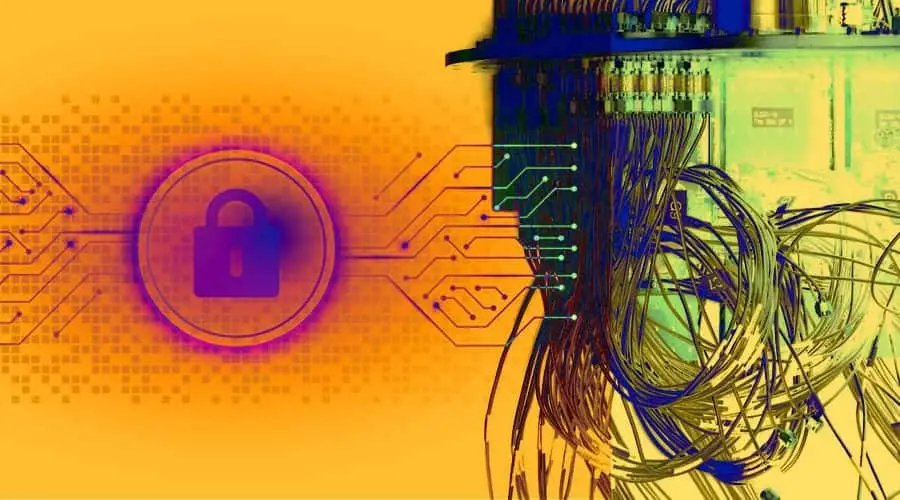What on earth is quantum computing? If you’re new to the world of computers, cyberspace, and indeed, all things digital, we may as well be speaking another language! But even if you’re not aware of the concept, quantum computing is very real, and something that can have a massive impact on cybersecurity.
For one, if a quantum computer were to fall into the hands of a hacker, its advanced software could be utilized with malicious intent. But it’s not all bad! Quantum computing can also be used to protect our digital assets and enhance our cybersecurity.
Keen to learn more? Just read on.
Querying Quantum Computing: What is it, Exactly?
To understand quantum computing, first, we need to understand quantum theory. Quantum theory forms the basis of quantum computing – which is, essentially, an advanced form of digital programming that enables the calculation of mathematical equations more rapidly than ever before. It is important to note here that, traditionally, classical computers have used mathematical programming in two ways:
- Symmetric encryption
Symmetric encryption involves the use of a ‘secret key’ to encrypt and decrypt sensitive data. This key is essentially a scrambled code that is near-impossible to unravel – unless you have prior access to it.
- Asymmetric encryption
Asymmetric encryption, on the other hand, has more than one key code – it also requires the use of a public key in conjunction with a private key to gain access to digital assets.
Historically, it has been considered logical that as these encryptions are formed using complicated mathematical equations, it is nearly impossible for external imposters to hack into them.
Quantum computing, and the advanced mathematical calculations its software facilitates, pose a significant challenge to this perspective. Of course, these quantum-leap advances in computer programming come with grave implications for cybersecurity. For example, rapid-fire decoding software enabled by quantum computing can allow for easier decryption of password encoding. Further to this, quantum computing can quickly conceptualize software algorithms, which could make it easier for hackers to gain unauthorized access to our digital assets.
In the age of Internet banking, when we store virtually all of our sensitive data online, protecting our digital assets is paramount. This is why entire schools of thought have been dedicated to studying, researching, and implementing cybersecurity measures to combat cybercrime. So much so, that reverse ethical hacking has even become a thing. In ethical hacking, a cybersecurity expert will go through the motions of unauthorized data breaches to understand the processes cybercriminals follow. Despite these measures, cybercriminals are becoming increasingly sophisticated, and concerningly, quantum computing could even work in their favor.
Consequences for Cybersecurity: What Role Does Quantum Computing Play?
When it comes to cybersecurity, quantum computing can have a significant impact. It both poses risks to cyber security, but also, brings with it considerable advantages in terms of tackling cybercrime.
Some of the cybersecurity risks associated with quantum computing include:
- Increased risk of hackers using quantum computing software to solve mathematically encrypted passwords and login data
- Increased risk of hackers being able to use quantum computing to analyze software algorithms and gain unauthorized access to private digital assets
- Potential exposure of sensitive data to more sophisticated cyber criminals
Some of the advantages of quantum computing for cyber security are:
- Advanced quantum computing software can enable predictive cybersecurity measures to pre-empt and prevent cyberattacks
- Facilitation of more sophisticated ethical hacking processes can help intercept future instances of digital hacking
- Early detection of potential threats thanks to quantum computing processes can help deflect these cybercrime issues
The Future of Quantum Computing: What’s Next?
So, what’s next in the mysterious world of quantum computing? ‘Supercomputing’, of course!
Using a combination of software programming and digital communication, supercomputing is being referred to as the ‘next wave’ of quantum computing. Undoubtedly, the technical developments that will come with it will move mountains in terms of our digital advancement and cybersecurity in the future. This is especially true for large corporations and organizations that store a great deal of confidential company information in the digital space. In these cases, intercepting any future quantum-informed cybercrime is critical, and we can only do this by being at the forefront of ever-evolving computer technology.

